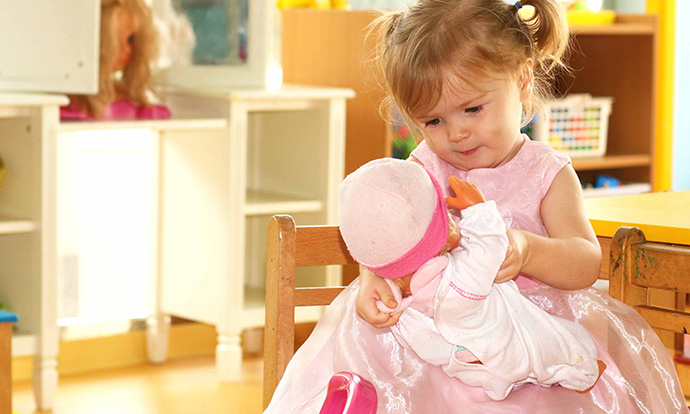-
Many parents imagine their children in a blissful future state: playing together, getting along, laughing, treating each other kindly, and always having each other’s backs.
But a new baby can cause serious upheaval for older brothers and sisters. That’s understandable. Your firstborn was the center of your universe, getting your rapt attention at his every adorable coo and tear-filled cry. With his basic needs fulfilled all of the time, he felt loved, a sense of belonging and occupied a (rather kingly) place in the family.
And then…along came baby sister.
With mom and dad (or dad and dad) focusing so much attention and energy on the baby, firstborn children may find themselves lost and struggling to find their place among this new family dynamic. And, depending on their age, they may not have the emotional tools to manage such a sudden and momentous shift. They’ve literally been dethroned by a tiny baby.Faced with the new queen in the castle, you may find your sweet, sweet boy suddenly changes. He may become:
Aggressive, by pinching, hitting, or grabbing things from the new baby—which often elicits the big reaction they seek from the parent.
A super pleaser, eager to help and do whatever is needed (at the expense of her own wants and needs). You might notice that your child seems fearful that she is still loved and important to you.
A “baby” again, regressing and wanting to drink from a bottle, to be carried, and even to sleep in a crib again.
Attention-seeking (and not always in a good way). She may make messes and get into things she used to know were off limits. He may throw a fit over little things like getting into his car seat or putting on his shoes.
Luckily, you can soften the impact of the new addition by helping older sibling can find a positive role within the new dynamic and giving him plenty of love, too. Here’s how:
- About Us
- -- Our Approach to Education
- -- Accreditation
- -- Careers
- Curriculum
- -- Infants: 4 - 12 months
- -- Toddler: Under 2's
- -- Nursery: 2's to 3's
- -- Preschool: 3's to 4's
- Camps & Enrichment
- -- After School Care
- -- Enrichment Programmes
- -- Holiday Camps
- Our Nursery
- -- Meet the Staff
- -- Gallery
- -- Meals at Nursery
- Admissions
- -- Nursery Calendar
- -- Enrolment
- -- Refer a Friend
- For Parents
- -- FAQs
- -- How to Choose a Nursery
- Blog
- Book Tour




